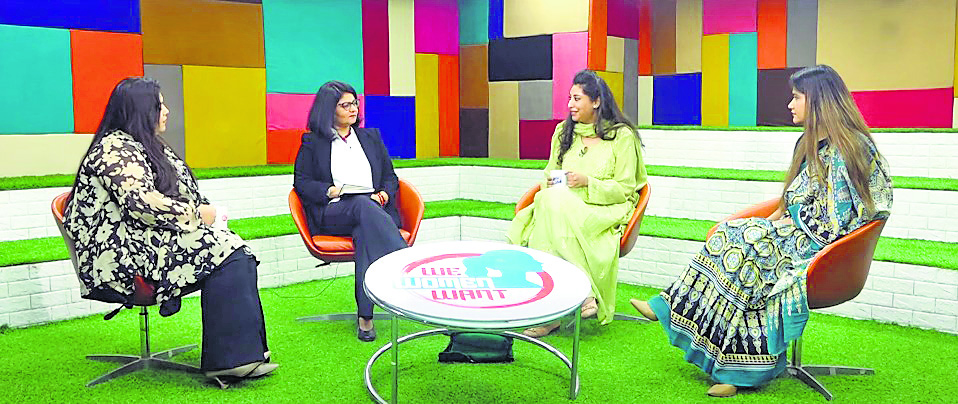
The show explores issues related to women, engaging with women achievers while offering support to those in need. It’s evolving into a support group, catering not only to women but also to men curious about understanding the female perspective. Today, our focus is on mental health. We’re joined by clinical psychologists and therapists to discuss a topic that extends beyond gender boundaries. Specifically, we’re delving into the day-to-day challenges women face compared to men, exploring the demographics seeking therapy. Is this surge post-pandemic? Interestingly, it’s not solely about marriage or weight-related concerns; women have various other topics they wish to address and discuss.
The experts are Sonal Chadha, a lead clinical psychologist, Shrishti Srivastav, the founder and CEO of INF heel and Amba Chavaa clinical psychologist.
Excerpts
Q. You mentioned something about being neurodivergent, something I heard for the first time. Could you share with us what exactly that means?
A. I’d like to emphasize that while women have more needs within the social construct and the associated mental health issues, clinically, it’s not biased; it’s a roughly 50/50 split. However, we might observe women experiencing certain clinical conditions more, like borderline personality disorder or postpartum depression. So, they’re almost equal. What I also believe is that men in our society aren’t allowed to show vulnerability; they aren’t encouraged to admit they have problems. It’s not just that women are more open, though they certainly are more receptive.
Q. Would you like to add something to that?
A. To add to your point, society raises men and women very differently. When a girl cries, it’s more acceptable—it’s seen as an expression. But when a boy cries, there’s a stereotypical reaction, like “why are you crying like a girl?” That phrase is something every man has likely heard while growing up. It restricts them or makes them feel guilty about showing their emotions. So, in therapy sessions, a lot of their struggle is about wondering if it’s okay to feel a certain way. Females feel more open because they believe they’re allowed to express themselves without restrictions or hiding. In contrast, men feel they have to conceal their emotions because of their societal role as providers. They feel they can’t appear weak because they have to take care of their families.
Q. More and more, the show reveals that while we often think men have all the advantages, they’re also confined within certain stereotypes—they have to provide, they’re not allowed to fail or cry, or even wear pink. Please continue?
A. Being neurodivergent is something I’ve realized—it’s been a while since I understood that I’m somewhat different from my peers. It became apparent to me, especially during my time at IIT, how my thinking was more numerical than what’s considered normal. I underwent therapy and realized I didn’t fit into any clinical label or diagnosis, but my thinking naturally inclined towards numbers.
Q. Is it also expected for men to talk about being neurodivergent, or is it stereotyped?
A. Anybody can be neurodivergent, but women who are neurodivergent find it tougher to fit into society because they tend to be more logically inclined. Many might think they have a flat effect, less emotional expression, which seems odd because society expects women to smile, be gentle, and expressive. So, many women begin masking their true personalities, pretending to be more sociable than they actually feel, inhibiting their genuine selves.
Q. That’s interesting. But apart from that, it’s not just about being labeled as gay or lesbian because you think like a man. Is it connected with that?
A. Yes, indeed. When women are perceived to think like men, they’re sometimes labeled as such. It can be challenging and advantageous in different scenarios. It’s a mixed bag; not conforming to social norms and societal expectations can be difficult.